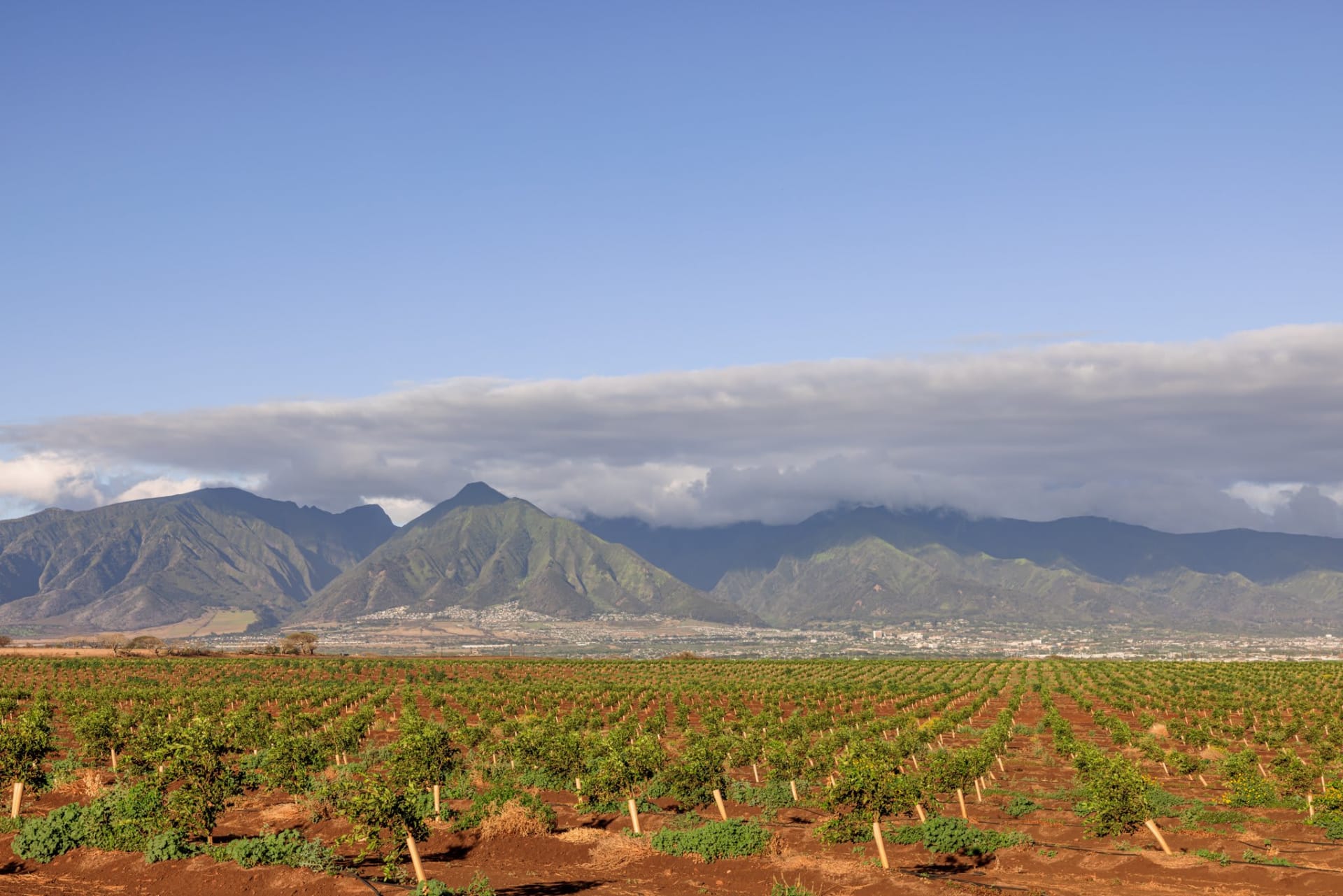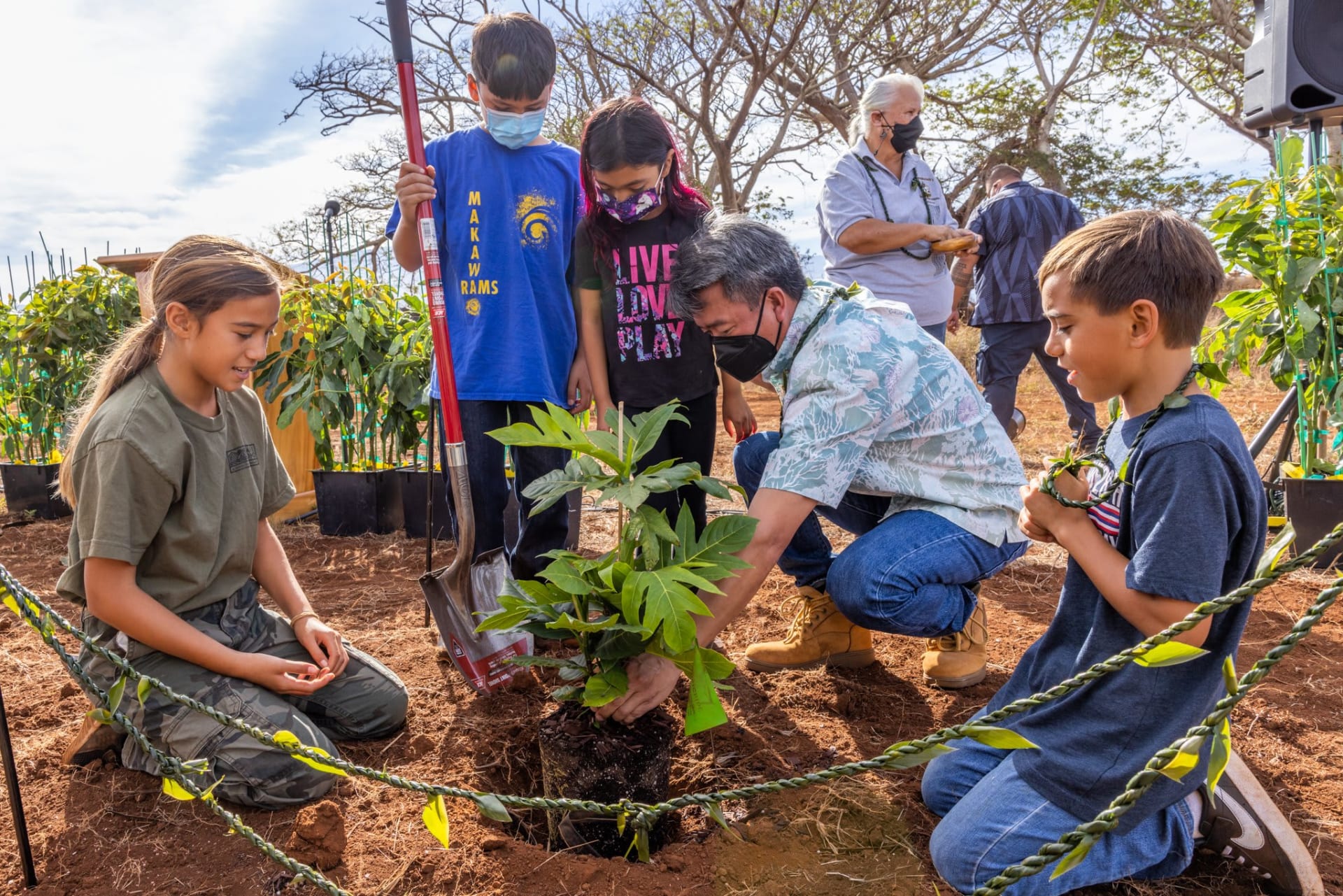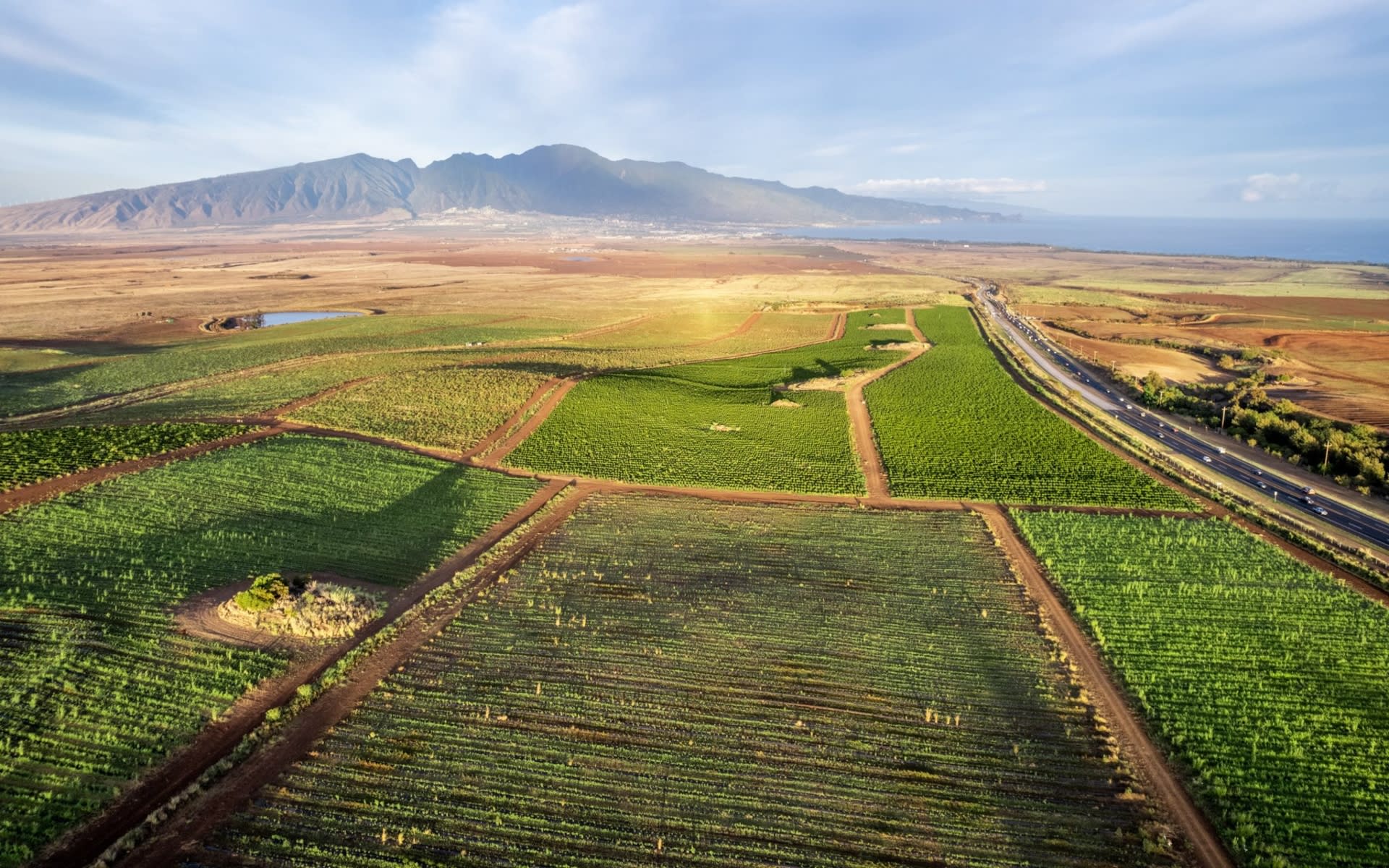IN A MAJOR, POSITIVE MOVE TOWARDS OUR FUTURE WITH MORE SUSTAINABLE CLIMATE-CHANGE SOLUTIONS AND INCREASING FOOD SECURITY ON THE ISLAND, MAHI PONO HAS JUST CELEBRATED PLANTING 1 MILLION TREES WITHIN CENTRAL MAUI.
KAHULUI, MAUI, HAWAII (Nov. 9, 2021) – A major step in reducing the impact of climate change and increasing Hawaii’s food security needs was celebrated today on the island of Maui when Mahi Pono, a Maui-based farming company, reached a milestone of planting 1 million trees.
In less than three years Mahi Pono has returned 41,000 acres of land to diversified agriculture. Prior to the company’s acquisition of the land, it was used solely for sugarcane production for 125 years.
“Planting 1 million trees is no small task and the impacts that it will have in fighting climate change, producing locally-grown food and creating jobs are all positive for the island of Maui and our state,” said Kainoa Casco, project manager for farming and sustainability for Mahi Pono. “This milestone is part of the bigger picture for sustainability at Mahi Pono and we are only at the start of our responsible farming journey.”
As an island state, Hawaii imports nearly 90 percent of all of its food. Since 2018, Mahi Pono and its team of 300 employees have worked to change that statistic by focusing on transforming former mono-cropped sugarcane fields into a thriving hub of diversified agriculture that prioritizes food sustainability and reduces Hawaii’s reliance on imported food.
“Maui is facing monumental threats from the worldwide climate crisis. A key element in reducing the effects of climate change and eventually turning it around, is to plant and maintain a large number of trees,” said Rob Weltman, founder of ReTree Hawaii, a statewide tree planting effort.

Image Credit: © MAHI PONO

Image Credit: © MAHI PONO
Tiare Lawrence, Mahi Pono’s Community Relations Director, gave an exact breakdown of the trees during the monumental event, saying that “there are 626,574 different types of citrus trees, including limes, lemons, oranges, tangerines and grapefruit. The are also 334,150 coffee trees, 1,009 avocado trees, 21,780 papaya trees and 17,896 trees used as windbreakers – including panax, hau and milo trees. 300 each of ‘ulu, coconut and macadamia nut trees were also planted.”
The 1 millionth tree planted today was ulu, a type of breadfruit and a staple Polynesian food crop. “We chose ulu to be our 1 millionth tree because it symbolizes what we are striving for at Mahi Pono: to sustainably feed Hawaii for generations,” added Tiare Lawrence. “Ulu trees can grow to a large size, provide hundreds of pounds of food annually, sequester carbon, reduce the need to till the soil or control weeds, and are heat and drought tolerant.”
Mahi Pono’s responsible farming practices, aided by modern technology, has enabled the company to reach its tree planting goal in less than three years, while significantly cutting back on emissions and making efficient use of resources, including water. Some of the technology incorporated into their farming operations include, water-efficient drip and fanjet irrigation techniques that reduce water consumption and installation of weedmats throughout the orchards to keep the soil moist which reduces water needs and also reduces the need for herbicides to control unwanted weeds.
“Planting 1 million trees is a testament to the hard work of the incredible Mahi Pono field teams.” Lawrence further commented. “Our teams are comprised of local Maui residents who come to work each day eager to change Maui’s food future and move the farm forward for all of Hawaii.”
“Our goal is to be a climate positive organization. For Mahi Pono, sustainability is about working collaboratively with the broader community to achieve Hawaii’s environmental, social, cultural and economic goals as a whole,” concluded Casco.
For more information please visit www.mahipono.com
CREDITS AND RESOURCES
Copyright NATIONAL ASSOCIATION OF REALTORS®. Article reprinted with permission. All rights reserved.


